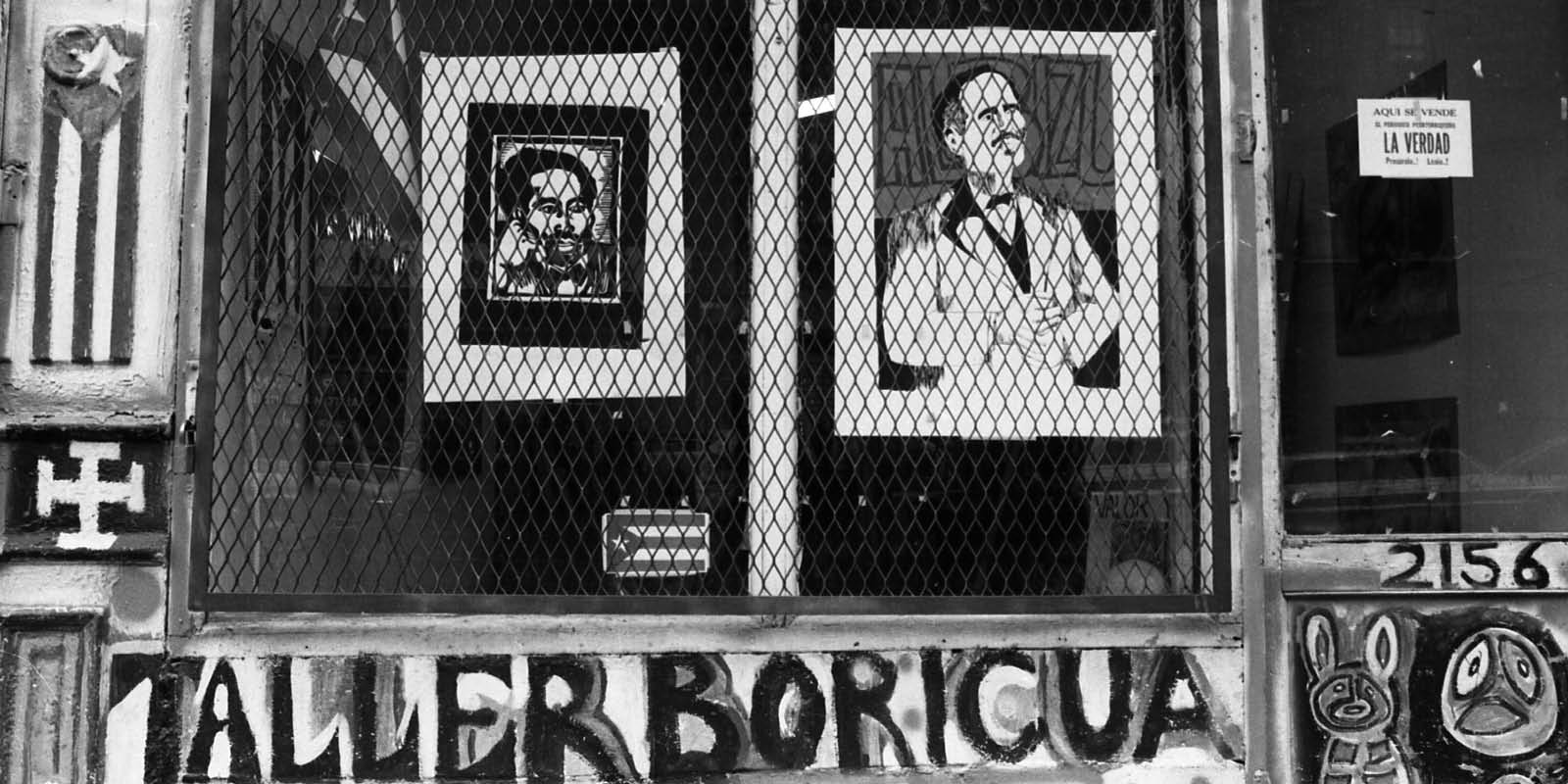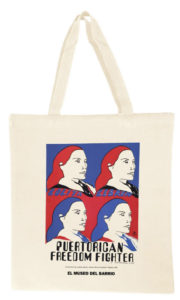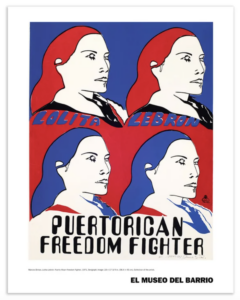In celebration of Taller Boricua’s 50th anniversary, El Museo del Barrio presents Taller Boricua: A Political Print Shop in New York, the first monograph exhibition in three decades about the East Harlem-based Nuyorican collective workshop and alternative space. Best known for its cultural empowerment and political activism, the organization commonly known as ‘The Puerto Rican Workshop,” began as a printmaking studio, produced and circulated hundreds of prints by artists. The prints, produced mainly in the 1970s, centered on issues of Puerto Rican independence, workers’ rights, and anti-imperialism both locally and in the Caribbean and Latin America, issues that remain relevant today.
Curated by Rodrigo Moura, Chief Curator of El Museo del Barrio, the exhibition is comprised of more than 200 works and ephemera, including serigraphs, lithographs, linocuts, paintings, assemblages, collages, and drawings by founding and early members, including Marcos Dimas, Carlos Osorio (1927 – 1984), Jorge Soto Sánchez (1947 – 1987), Nitza Tufiño, and Rafael Tufiño (1922 – 2008), among several others. Works in the show draws from El Museo’s Permanent Collection, Taller’s extensive archives, as well as other collections.
A recognized space for political activism, Taller Boricua is one of several Puerto Rican organizations created in New York City around the same time, as the Young Lords and El Museo del Barrio, and has mentored several generations of artists, art historians, and curators. The space served as a focal point for the affirmation of identity as it relates to artistic production in the diaspora, as well as its connections with non-Western art history narratives. Focused on its first decade of existence, the exhibition also looks at the close relationship between Taller Boricua and El Museo del Barrio, examining their common members, ethos, and the artists’ role in the creation of a visual identity for the Museum’s programs and exhibitions in its early years.
Leadership support for this exhibition is provided by Tony Bechara. Generous funding is provided by The de la Cruz Martínez Family and Encarnita Valdes Quinlan and Robert C. Quinlan. Additional support is provided by Richard Torres.


